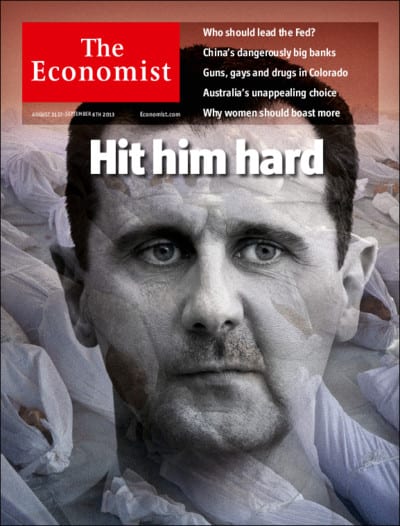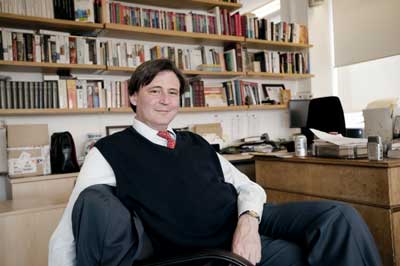How revolting can the imperialist media get? Ask The Economist editors.
BROUGHT TO OUR ATTENTION BY ASSOC EDITOR PAUL CARLINE

Those who promote wars of aggression based on lies are as guilty as those who wage them.

John Micklethwait, presstitute, sitting pretty in the halls of power while shamelessly promoting war. Scum is too kind a word.
EDITOR in Chief: John Micklethwait (born 1962), 2006–present
Micklethwait was born in 1962, in London, England, and educated at the independent school Ampleforth College and Magdalen College, Oxford, where he studied history. He worked for Chase Manhattan Bank for two years and joined The Economist in 1987. Prior to becoming editor-in-chief, he was United States editor of the publication and ran the New York Bureau for two years. Before that, he edited the Business Section of the newspaper for four years. His other roles have included setting up an office in Los Angeles for The Economist, where he worked from 1990 to 1993. He has covered business and politics from the United States, Latin America, Continental Europe, Southern Africa and most of Asia.
[pullquote] The heroic doctor Norman Bethune called such men “those who make the wounds.” [/pullquote]
[1] A frequent broadcaster, Micklethwait has appeared on CNN, ABC News, BBC, C-SPAN, PBS and NPR.
He is a trustee of the British Museum.[2]
He was also a delegate, along with two colleagues, at the 2010 Bilderberg Conference held in Spain. This group consists of an assembly of notable politicians, industrialists and financiers who meet annually to discuss issues on a non-disclosure basis.
The Economist is an English-language weekly news and international affairs publication owned by The Economist Newspaper Ltd. and edited in offices in London.[3][4] Continuous publication began under founder James Wilson in September 1843. For historical reasons The Economist refers to itself as a newspaper, but each print edition appears on small glossy paper like a news magazine, and its YouTube channel is called EconomistMagazine.[5] In 2006, its average weekly circulation was reported to be 1.5 million, about half of which were sold in the United States.[6]
The publication belongs to The Economist Group, half of which is owned by Pearson PLC via the Financial Times. A group of independent shareholders, including many members of the staff and the Rothschild banking family of England,[7] owns the rest. A board of trustees formally appoints the editor, who cannot be removed without its permission. (Source: Wikipedia)